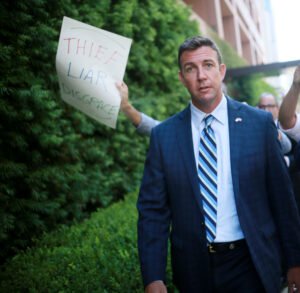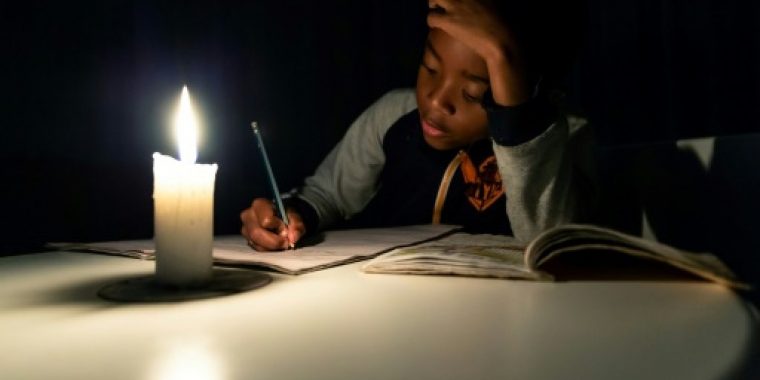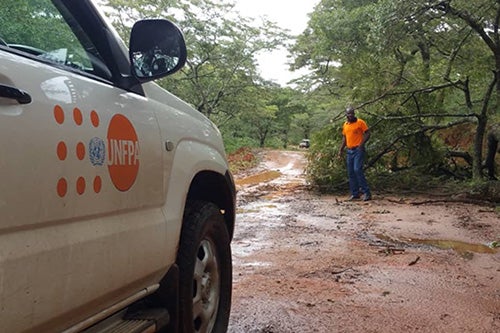
When indicted for murder, if it’s clear the person charged committed the crime, there are really only a few defenses. None of them are easy.
One is self-defense, but this can only be used if the defendant used a force equal to the force employed against him and if he had no safe way to escape.
Then there’s the insanity defense where a person experiencing a psychotic break kills someone who he believes, for example, to be an alien. If the defense is accepted by a jury, the defendant does not go free; instead, he’ll be committed to a psychiatric institution until deemed no longer dangerous — a fate more uncertain then getting a fixed jail term.
The next set of defenses can reduce a case of murder to manslaughter. Where a defendant never intended to kill anyone, but the victim inadvertently dies, manslaughter can be charged — for example, in a bar-fight case where an intoxicated patron hits someone over the head with a bottle intending to stun him but instead killing him.
There’s also the defense of “extreme emotional disturbance” (EED). This defense is invoked when a particular event triggers a person’s anger to such an extent that he can no longer control his actions. According to the jury instructions, “the defendant must have had an emotional disturbance so extreme as to result in and become manifest as a profound loss of self-control.” These so called “crimes of passion” if believed by a jury, reduce the charge of murder to manslaughter and greatly lower the sentencing numbers.
Examples of an EED defense include situations where a wife, beaten by her husband for years, snaps one night and suffocates him.
EED defenses are not spelled out by statute. A defense attorney can, if backed by psychiatric findings and experts, proffer any explanation supporting why a client suffered a “profound loss of self-control” as long as a jury finds that loss of control to be reasonable from the defendant’s viewpoint.
Recently, the New York legislature banned a particular flavor of EED defense — the “gay panic” defense — and while I understand the rationale behind this move, I’m always disturbed to see any defense fall by the wayside no matter how politically incorrect the defense might be.
The new law affirmatively prohibits a defendant’s EED defense if based on “the discovery, knowledge or disclosure of the victim’s sexual orientation, sex, gender, gender identity, gender expression or sex assigned at birth.”
For example, if an extreme emotional response leading to murder is provoked when a man discovers a person he believed to be female has male genitalia, he can no longer make out an EED defense.
No matter how much I personally agree that having an emotional disturbance due to a person’s sexual orientation is inappropriate, old-fashioned, and not a good excuse for losing control, we, unfortunately, live in a world where this still happens.
Even if the state didn’t legislate the defense out of existence, a jury would in all likelihood reject it anyway as unreasonable. EED defenses come up only very rarely. They even more rarely succeed. That’s because jurors don’t like giving defendants a benefit for losing control and killing someone, no matter the cause. It’s the exceptional case where the defendant is so sympathetic, that the defense has even a smidgen of a chance of prevailing. Maybe in a case where a teen had been repeatedly sexually abused by her stepdad then turns around and kills him to protect her younger sister, a jury might find the murder mitigated by her circumstances. But even then, she’s likely to get a hefty jail sentence from the judge for manslaughter.
In this day and age, especially in New York City, any proffered “gay panic” defense (even if it still existed) would likely be rejected whole cloth as out of touch with reality. It didn’t need to be legislated out of existence.
We now get to Paul Manafort. Manafort pleaded guilty to financial fraud charges in federal court and has begun serving a 7.5-year prison sentence. But, in spite of the jail time, critics still fear he might receive a pardon from his former employer, President Donald Trump.
Last week, he was arraigned in New York State criminal court on largely the same charges. If convicted, no Trump pardon could save him from whatever sentence he’ll receive. The law that permits prosecution in both state and federal jurisdictions for the same crime was recently upheld by the U.S. Supreme Court and hailed by progressives as a way to make sure Manafort gets his just deserts.
Yet, although the ends-justifying-the-means rationale may be applauded in Manafort’s case, there are thousands of other defendants who suffer unfairly because of this end-run around double-jeopardy prohibitions.
I’ve represented young men who pleaded guilty to small-time, one-bag drug sales in state court for offers of probation. They call them “paper felonies,” and never expect the convictions to come back to bite them. However, often these same convictions are used in subsequent federal prosecutions as pieces of the jigsaw to prove larger-scale narcotics trafficking. This is neither fair, nor necessary.
Lauding changes of the law or interpretations of what already exists to favor a particular agenda — like banning “gay panic” EED defense or permitting dual prosecution in state and federal court for the same crimes — may be satisfying in the short run, but in the long run will come back to haunt us.
The state and federal governments are powerful entities. They’ve got every resource at their command. Eliminating defenses or sidestepping double-jeopardy protections because we like the outcome in certain cases will ultimately undermine the rights of all defendants and chip away our system of due process.
Toni Messina has tried over 100 cases and has been practicing criminal law and immigration since 1990. You can follow her on Twitter: @tonitamess.





















 The cyclone destroyed major roads and bridges. © UNFPA Zimbabwe
The cyclone destroyed major roads and bridges. © UNFPA Zimbabwe Reproductive health supplies are offloaded in an affected community.
Reproductive health supplies are offloaded in an affected community.

